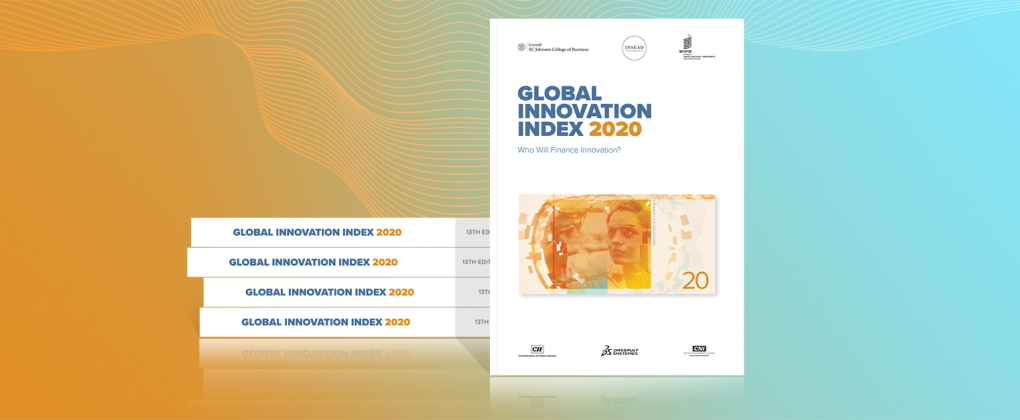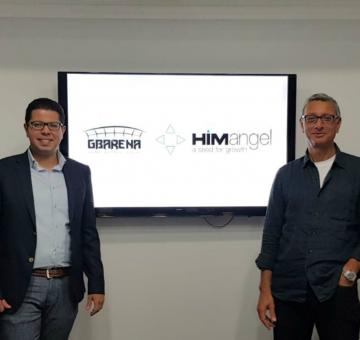GII 2020: COVID-19 Pandemic’s Expected Impact on Global Innovation

The 13th edition of The Global Innovation Index 2020 (GII) report was released by Cornell University, INSEAD, the World Intellectual Property Organization (WIPO, a specialized agency of the United Nations), and the 2020 GII Knowledge Partners: The Confederation of Indian Industry; Dassault Systèmes - the 3DEXPERIENCE Company; and The National Confederation of Industry (CNI) – Brazil.
The core of the GII Report consists of a ranking of world economies’ innovation capabilities and results. Recognizing the key role of innovation as a driver of economic growth and prosperity, and the need for a broad vision of innovation applicable to developed and emerging economies, the GII includes indicators that go beyond the traditional measures of innovation, such as the level of research and development.
The GII 2020 is calculated as the average of two sub-indices. The Innovation Input Sub-Index gauges elements of the national economy which embody innovative activities grouped in five pillars: (1) Institutions, (2) Human capital and research, (3) Infrastructure, (4) Market sophistication, and (5) Business sophistication. The Innovation Output Sub-Index captures actual evidence of innovation results, divided in two pillars: (6) Knowledge and technology outputs and (7) Creative outputs.
The GII 2020’s theme asks Who Will Finance Innovation?
A key question is how the economic fallout from the COVID-19 crisis will impact start-ups, venture capital, and other traditional sources of innovation financing.
Many governments are setting up emergency relief packages to cushion the impact of the lockdown and face the looming recession. But the GII 2020 advises that further rounds of support must prioritize and then broaden support for innovation, particularly for smaller enterprises and start-ups that are facing hurdles in accessing rescue packages.
“The rapid, worldwide spread of the coronavirus requires fresh thinking to ensure a shared victory over this quintessential global challenge,” says WIPO Director General Francis Gurry. “Even as we all grapple with the immediate human and economic effects of the COVID-19 pandemic, governments need to ensure that rescue packages are future oriented and support the individuals, research institutes, companies and others with innovative and collaborative new ideas for the post-COVID era. Innovations equal solutions.”
Switzerland, Sweden, U.S., U.K and Netherlands lead the innovation ranking, with a second Asian economy - the Republic of Korea - joining the top 10 for the first time (Singapore is number 8). The top 10 is dominated by high-income countries.
A Shifting Innovation Landscape
The geography of innovation continues to shift, the GII 2020 shows. Over the years, India, China, the Philippines, and Viet Nam are the economies with the most significant progress in their GII innovation ranking over time. All four are now in the top 50.
The top-performing economies in the GII are still almost exclusively from the high-income group, with China (14th) remaining the only middle-income economy in the GII top 30. Malaysia (33rd) follows.
India (48th) and the Philippines (50th) make it to the top 50 for the first time. The Philippines achieves its best rank ever—in 2014, it ranked 100th. Heading the lower middle-income group, Viet Nam ranks 42nd for the second consecutive year— from 71st in 2014. Indonesia (85th) joins the top 10 of this group. Tanzania tops the low-income group (88th).
“As shown by China, India and Viet Nam, the persistent pursuit of innovation pays off over time," says Former Dean and Professor of Management at Cornell University Soumitra Dutta. “The GII has been used by governments of those countries and others around the world to improve their innovation performance.”
The two economies in Northern America, the U.S. and Canada, rank in the top 20 in this year’s GII, and Sixteen of the GII leaders in the top 25 are European countries, with seven of them ranking in the top 10.
Switzerland remains the world’s leader in innovation for the 10th consecutive year. A consistent producer of high-quality innovation outcomes, it improves in patents and venture capital deals.
This year Uzbekistan (93) enters the GII rankings and ranks 4th in its region, assisted by better data coverage, Israel (13), Cyprus (29), and the United Arab Emirates (34) are the top three economies in the Northern Africa and Western Asia, and Saudi Arabia (66) and Jordan (81) are among the economies that saw a significant improvement in their ranking this year, due to a combination of performance improvements and model changes.
Key Findings in this year Edition
The key findings of the 13th edition of The Global Innovation Index 2020 (GII) are:
- The COVID-19 crisis hit the innovation landscape at a time when innovation was flourishing. In 2018, research and development (R&D) spending grew by 5.2%, i.e., significantly faster than global gross domestic product (GDP) growth, after rebounding strongly from the financial crisis of 2008-2009. Venture capital (VC) and the use of intellectual property (IP) were at an all-time high.
- In the context of the GII 2020 theme Who Will Finance Innovation?, one of the GII findings is that the money to fund innovative ventures is drying up. VC deals are in sharp decline across North America, Asia, and Europe. The impact of this shortage in innovation finance will be uneven, with the negative effects felt more heavily by early-stage VCs, by R&D-intensive start-ups, and in countries that are not typically VC hotspots.
- While the impacts of the pandemic on the science and innovation systems will take time to unfold, there are positive signs of increased international collaboration in science. At the same time, there are concerns of major research projects being disrupted and international closure in the pursuit of innovation.
- The COVID-19 crisis has already catalyzed innovation in many new and traditional sectors, such as health, education, tourism and retail.
“There are now genuine risks to international openness and collaboration on innovation. Faced with unprecedented challenges, whether sanitary, environmental, economic or social, the world needs to combine efforts and resources to ensure the continuous financing of innovation,” says INSEAD Executive Director for Global Indices Bruno Lanvin.
Download full report Download related documents





































































EgyptInnovate site is not responsible for the content of the comments